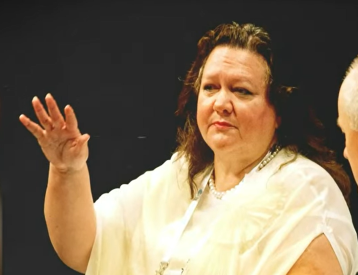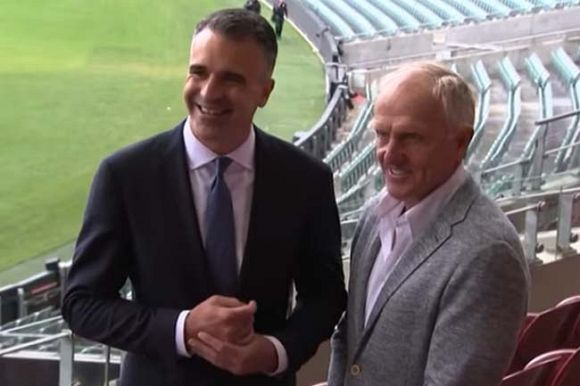With his scheme of taxpayer funding for political parties, South Australian Premier Peter Malinauskas has delivered a model that will underwrite Labor election victories for the foreseeable future, writes John Henry.
FRENCH KING Louis XIV ruled France for 72 years, amid such unsurpassed power, comfort and style that he called himself the Sun King.
South Australia’s Premier Peter Malinauskas has achieved something of the unassailability of King Louis with the passage of Australia’s first system of compulsory taxpayer funding for political parties, replacing private donations, which are now banned.
Riding high in the polls and with large majorities in both houses of Parliament, Malinauskas’ Labor Party will be the chief beneficiary of the new law, ushering in a Versailles-on-Torrens era in Adelaide that could see the silver-tongued, debonair young Premier rule for as long as he wishes.
Under the cash-for-votes scheme, which comes into force in July, the South Australian Labor Party will receive almost $6 million (operational, electoral) directly from taxpayers — with smaller parties and independents receiving much less (based on a formula linked to first preference votes received at the 2022 State Election).
Realistically, Malinauskas was always going to win the next election, such is the parlous state of the Liberal Opposition and the less-than-sceptical local media. (To be fair, the Premier has hired much of the top tier of the state’s journalists to staff his cadre of Government media advisers).
But with the new scheme, Malinauskas has delivered something better than a single victory: a business model that will underwrite Labor election victories for the foreseeable future.
Any political system reform that entrenches one party in power is not democratic.
But we should not be surprised that this scheme emerged from the Malinauskas Government, which has a track record of extravagant spending and avoiding transparency and accountability.
His first term is seeing accusations of large-scale pork-barrel spending, inflationary hand-outs and spiralling deficits, as well as the staging of extravagant AFL and LIV Golf multi-day events that spend large (undisclosed) sums of taxpayer money.
It seems Malinauskas ignored the South Australian Auditor-General’s vain attempts at transparency (around pork) and spurned the SA Independent Commissioner Against Corruption’s modest attempts to restore some of her powers before she resigned.
The SA Premier appears to have conjured what is impossible in real life: a perpetual (political) motion machine — his Government shamelessly rewards client constituencies (marginal electorates, welfare recipients, AFL and international golf fans) in the realistic expectation they will vote him back into power.
And the oil in the machine is forcing every taxpayer in the state to fund your party, regardless of its policies or track record.
For the Premier and Labor – unassailable and now financially rewarded well beyond any other party by dint of its numbers in Parliament – it must look like a virtuous circle.
South Australia was already one of the cushiest places in the Western world for politicians.
This became obvious with the 2021 spectacle that saw every MP in Parliament (Liberal, Labor, Green, Independent – the lot) voting to gut the powers of the state’s anti-corruption commissioner.
After Labor’s victory in March 2022, SA’s then Anti-Corruption Commissioner Ann Vanstone tried to convince the State Government to review the “unworkable” changes made in 2021, which put MPs beyond the reach of some of her investigations. Malinauskas essentially ignored Commissioner Vanstone’s concerns and she resigned in July last year.
Malinauskas reportedly came up with his cash-for-votes idea as a 32-year-old union official. A decade later it has become a reality — billed as medicine for a system that relies on opaque corporate donations.
It did not face a parliamentary inquiry (or any other kind of public inquiry), as called for by the Australia Institute, which said the new funding arrangements were “undemocratic” and would damage public trust in politicians.
Sydney University constitutional law professor Anne Twomey said the structure of the Malinauskas scheme, which sees taxpayer funding apportioned according to success (or failure) at the last election – and all third-party donations banned – will favour incumbents.
The Government has since sought to allay this fear by including a carve-out for “new entrants”, allowing donations of up to $5,000 and dialling down the advantage that governing parties receive over others, by linking funding to first preference votes, not seats in parliament.
However, the advantage of incumbency remains and is considerable.
The new scheme was supported across the Parliament (with some amendments) and it did not attract significant media criticism.
Malinauskas may not reach King Louis’ 72 years in power, but there’s a feeling in Adelaide that he could rule for as long as he wishes.
Could such a concentration of power and taxpayer resources be repeated in the larger eastern states?
Surely, New South Wales, Victoria and Queensland are too big and bustling, with too many competing interests and power centres, for incumbent governments (Labor and Liberal) to emulate the “Malinauskas model”.
Or is Malinauskas a political leader who is, to borrow King Louis XIV’s motto, nec pluribus impar — “like no other”?
Support independent journalism Subscribe to IA.
Related Articles











